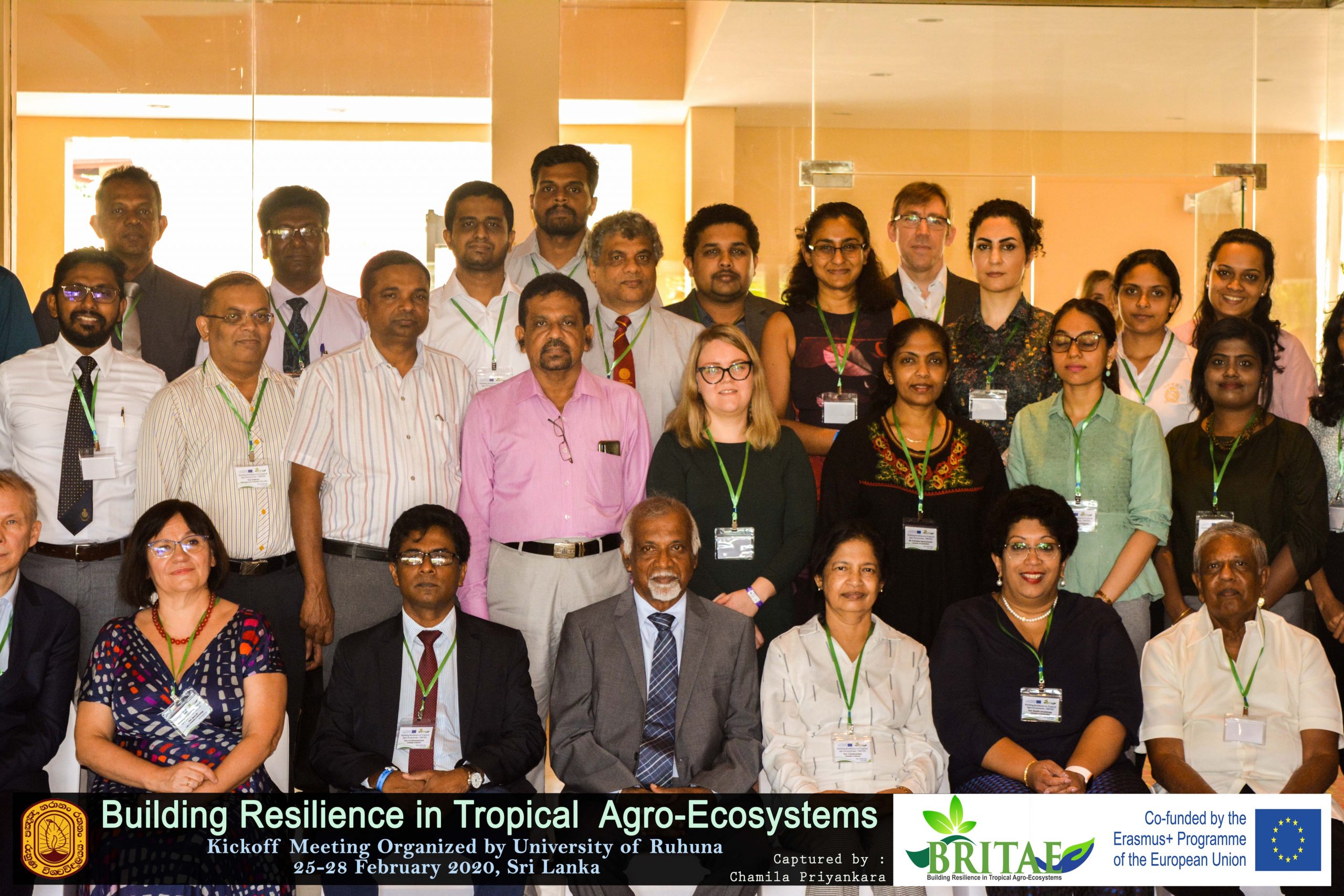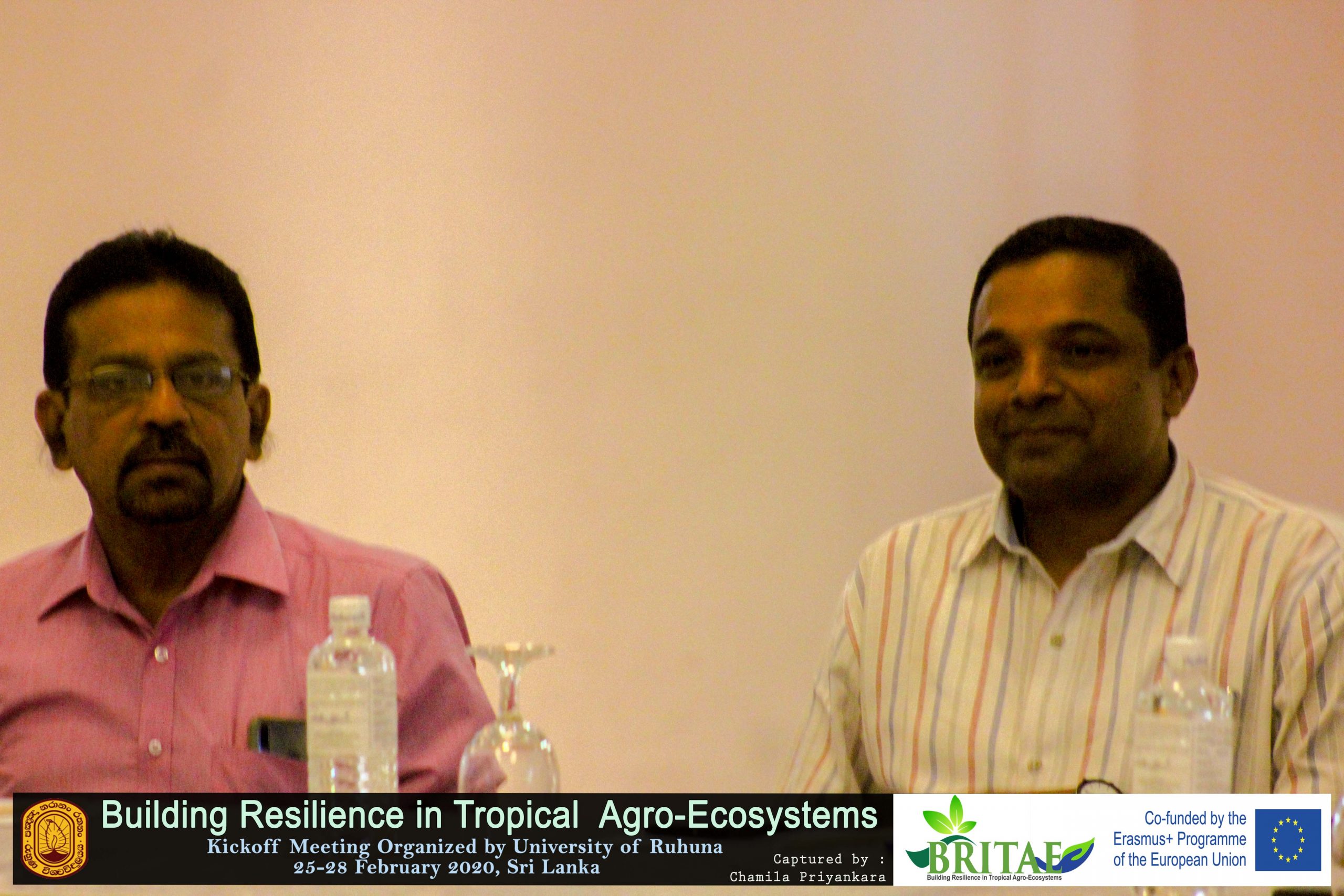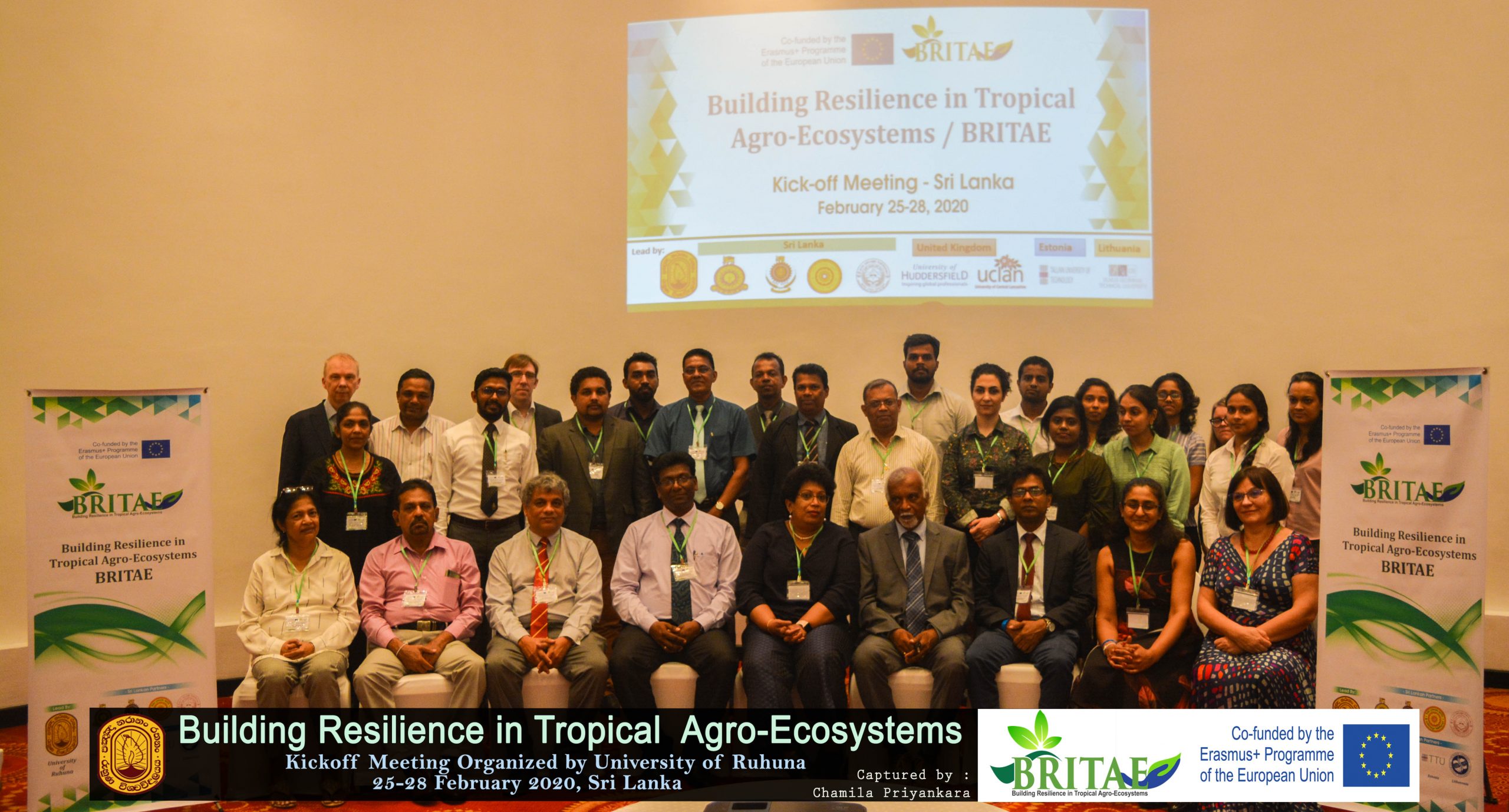A framework functions as a supporting structure for any system, production or even a research. The ultimate goal of the BRITAE project is to design and launch an MSc programme in tropical agro-ecosystem resilience. The framework acts as a supporting structure for this entire process. A framework consists of rules, beliefs and principles along with ideas and other information. The BRITAE framework was developed using the following procedures:
(i)Two literature reviews done by universities of Ruhuna, Sri Lanka and University of Huddersfield, U.K.
Key outcomes of the literature review conducted by University of Ruhuna are functions of ecosystems, agro-ecosystems, role of HEIs in agro-ecosystems resilience, the impact on agro-ecosystems, resilience in agro-ecosystems, the necessity of agro-ecosystem resilience, agricultural vulnerability, existing practices and challenges. Key outcomes of the extended literature review were discussed under areas of agro-ecosystems, climate change, disaster risk reduction, resilience, the role of higher education, international policies, challenges, and area for improvement. Some of the key findings of the comprehensive questionnaire survey are existing courses, staff capacities, priorities, strategies implemented, extent of achievement, governance and policy, knowledge and awareness, training required, laboratories, grants and funds, incentives, infrastructure capacities, technology, access to information institutional collaboration and satisfaction of the members of the staff. These key findings were used to develop the comprehensive BRITAE Framework.
(ii) A survey conducted in agricultural, technology, science, food science, livestock and fisheries, geography and civil and environmental engineering faculties/departments in 12 Sri Lankan universities
(iii) Institutional reports from BRITAE partner universities in Sri Lanka
(iv) A focus group discussion
These ideas, rules and information have provided a solid foundation and an anchor for the development of the MSc programme in tropical agro-ecosystems resilience. Also, knowledge gaps within the vast area of inter-connected disciplines, existing practices, research interests, innovations, and gaps at both global and local level have been identified through the framework. The BRITAE framework clearly reveals prominent links in relation to tropical agro ecosystems resilience. These gaps have been identified by comparing current practices among local higher education institutions using the BRITAE framework.
The BRITAE framework was developed by aggregating all relevant concepts under a three-layer framework using output tools such as the two literature reviews, the questionnaire survey, institutional reports and roundtable discussions with subject experts. Though many concepts were extracted from the supporting documents, only the relevant ones have been included in the framework. The framework illustrates 151 concepts which are classified into five major areas in the first layer namely- resilience, agro-ecosystems, environment, policy and governance, and higher education. There are 21 key areas illustrated in the second layer of the framework and the third layer consists of 125 concepts that are linked to the second layer based on the most suitable connectivity. There can be a fourth and fifth layer based on the requirement and developed with proper scientific approaches. Work Package 1 undertook the development of the BRITAE framework: led by the overall project lead, University of Ruhuna and University of Huddersfield, United Kingdom.
Images of the kick-off meeting held in February 2020


